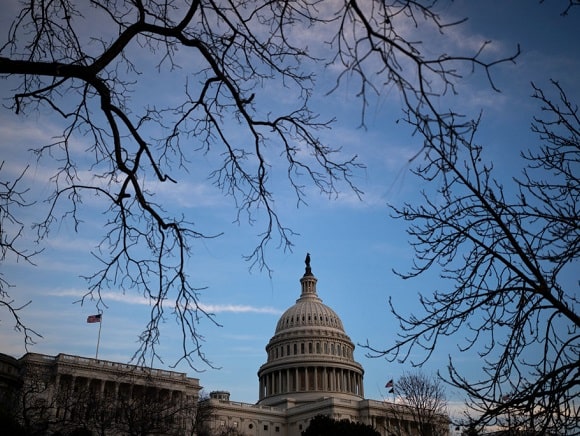It’s that time again: Funding for the federal government was set to run out Friday night, December 3 – and with it, the extension on the national debt limit. So once again, Congress put all other concerns aside to wrangle over the federal operating budget, lest the government partially shut down until the issue is resolved. A deal was struck fairly quickly this time, and both legislative houses approved a continuing resolution in time for supper. Now they have until February 18 to get FY2022 squared away – or, at the very least, come up with another stopgap solution and kick that can just a little farther down the road.
Kicking the Can Again
 Continuing resolutions (CRs) are temporary funding measures to stave off a shutdown, and it has often been said upon their passage that lawmakers kicked the can down the road rather than addressing the real issues. Be that as it may, Congress did, at least, kick the can a little harder this time, sending it a good two months away.
Continuing resolutions (CRs) are temporary funding measures to stave off a shutdown, and it has often been said upon their passage that lawmakers kicked the can down the road rather than addressing the real issues. Be that as it may, Congress did, at least, kick the can a little harder this time, sending it a good two months away.
In what amounts to a party-line vote, H.R. 6119 cleared the lower chamber 221-212, with only a single Republican – Rep. Adam Kinzinger of Illinois, who isn’t running for re-election – voting in support. There was a motion to reconsider, but the subsequent motion to table it was quickly approved. It then cleared the Senate with a much more bipartisan 69-28.
This new CR will fund the government at the current levels, but with an added $7 billion for refugees from Afghanistan. The lack of change is intentional, as the hope is it will drive Congress to craft a full-year omnibus. As for the two-month continuation, that length of time was chosen to give folks from both sides of the aisle and both houses plenty of space to work out a real deal rather than simply another CR. As Sen. Patrick Leahy (D-VT) put it after the CR cleared the House, this is just buying time to negotiate a full-year bill. So, then, the hope is that a shutdown can be averted for now, and by the next time it comes up, there will be a full funding package ready to go.
All About the Senate, Again

Sen. Roger Marshall (R-KS) (Photo by Drew Angerer/Getty Images)
There should never really have been any question that the Democrat-led initiative would clear the House. Even with only party-line support, it was guaranteed so long as a handful of Democrats didn’t rebel. The 221 to 212 result should surprise no one.
All along, the story has been the Senate. Could the CR clear the upper chamber, or would the GOP obstruct? Some Republicans were planning to delay the passage of the stopgap bill unless it blocked funding for the enforcement of President Joe Biden’s vaccine mandates, which are currently tied up in the courts. Sens. Mike Lee (R-UT), Ted Cruz (R-TX), and Roger Marshall (R-KS) have been leading this movement. They said they would gladly accept a vote on an amendment defunding the mandates as long as it only required a simple majority to be adopted.
Marshall tried for a similar amendment to the last CR, but it required 60 votes to pass and failed along party lines. If such an amendment could be had with only a simple majority, there was a chance Sen. Joe Manchin (D-WV) might push it over the line. He opposed Marshall’s amendment last time, but didn’t disclose how he would vote this go around. Manchin had, however, stated that while he has been in favor of a vaccine mandate for the federal government, he is less enthused about it for the private sector, and that is likely what fueled the hope of those Republicans. Indeed, Manchin revealed Dec. 2 that he is supporting a bill to outlaw Biden’s vaccine mandate on businesses with over 100 employees. “Let me be clear, I do not support any government vaccine mandate on private businesses. That’s why I have cosponsored and will strongly support a bill to overturn the federal government vaccine mandate for private businesses,” the senator said in a statement. “I have long said we should incentivize, not penalize, private employers whose responsibility it is to protect their employees from COVID-19,” Manchin asserted.
In the end, opposition to the CR was dispelled fairly quickly, and the Senate reacted faster and with less partisan bickering than the House. Now Congress has another couple of months before they have to either pick that can up or kick it once again. Whether they use that time to get the job done – or just put it off until the last minute, as they generally do – is another question entirely.
~ Read more from James Fite.




